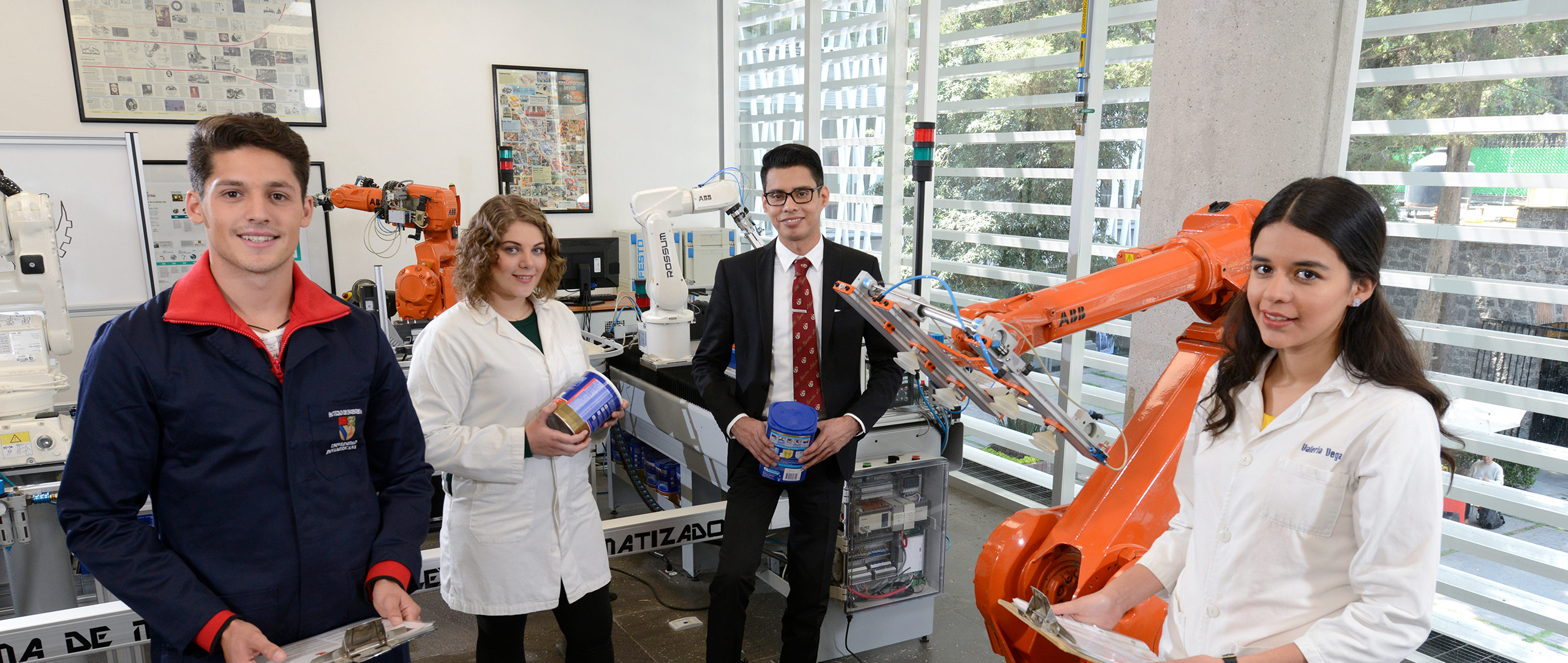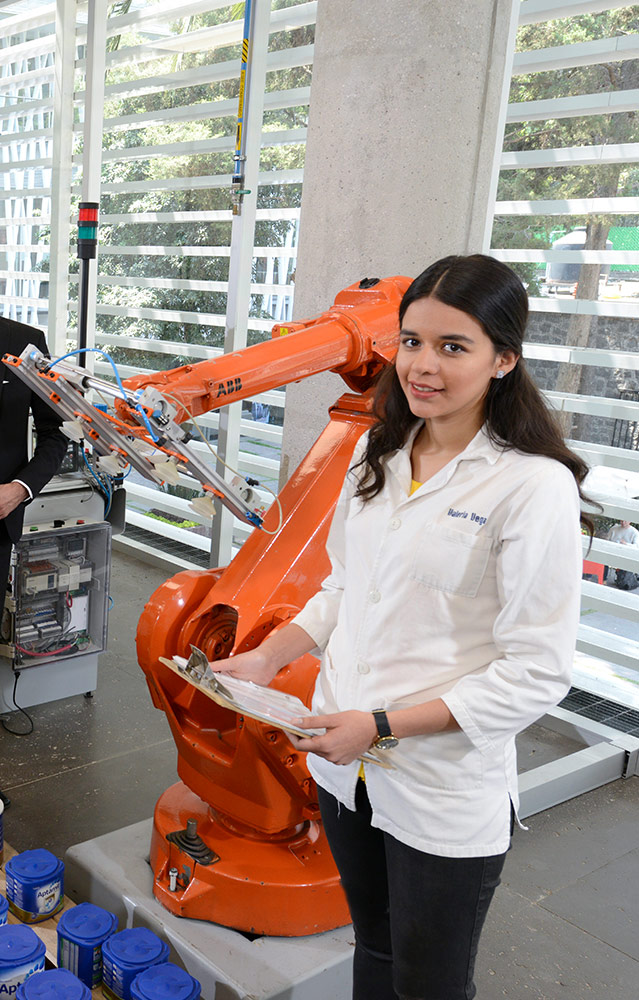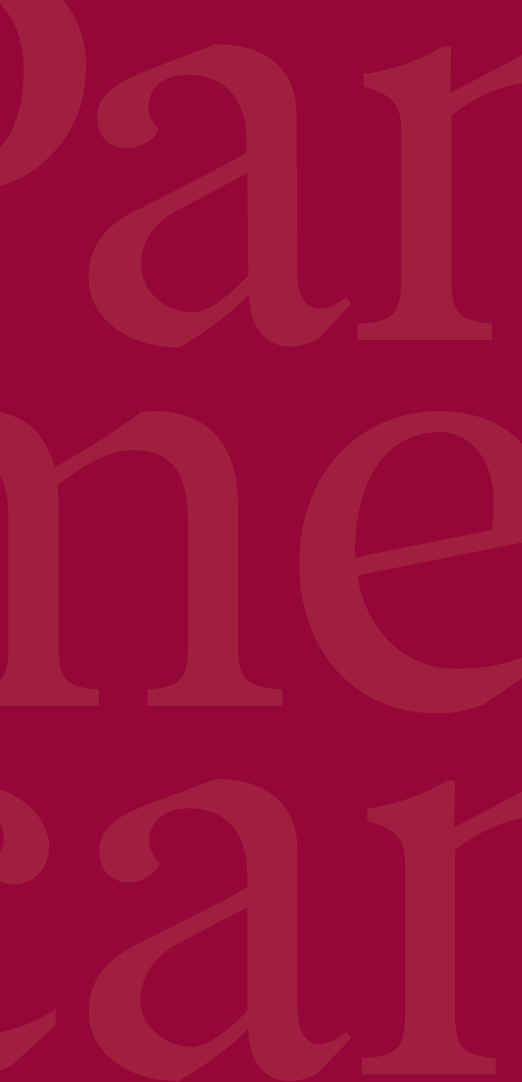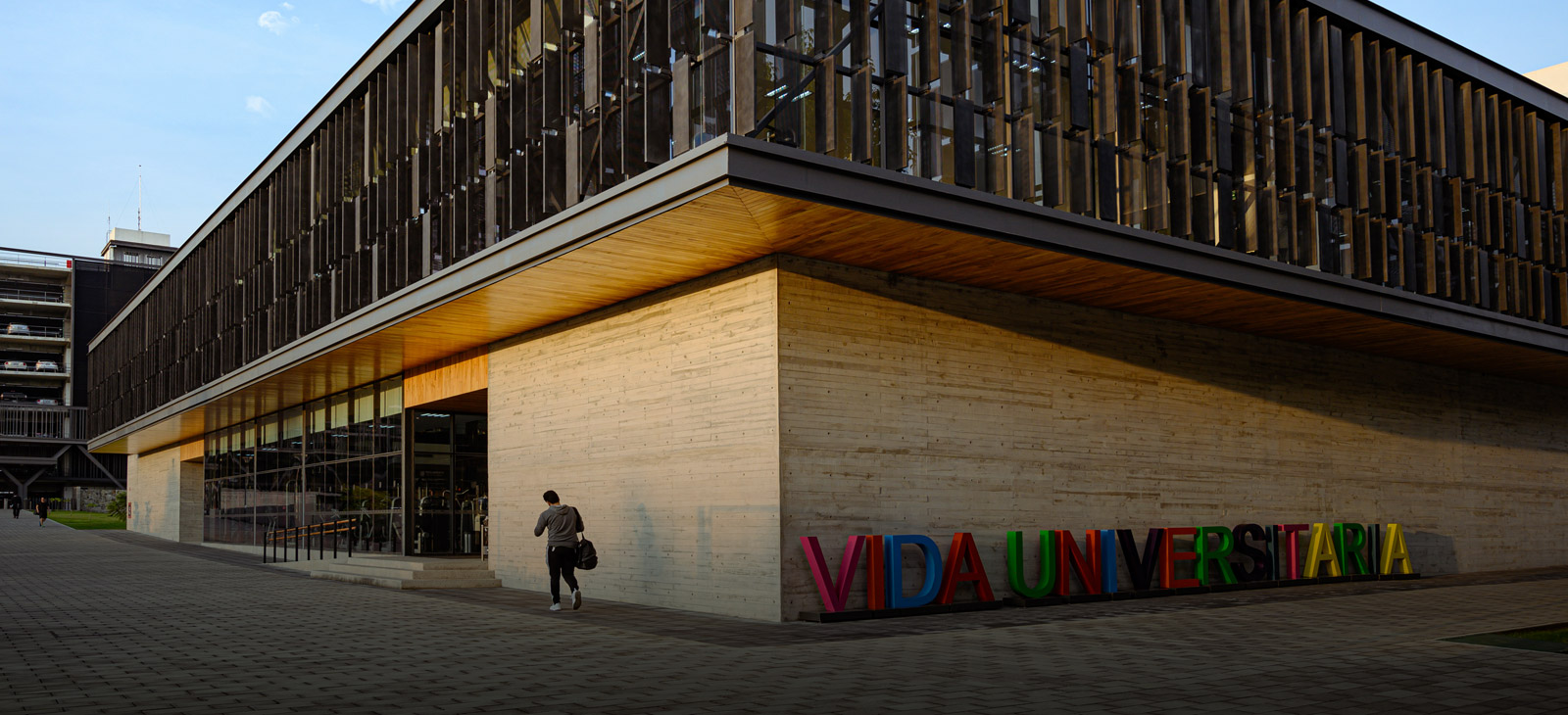

Bioelectronics Engineering
The Bioelectronic Engineer (IBE) from Universidad Panamericana is a professional capable of innovating in the design of electronic devices that will change and improve the future of humanity through the development of high technology. Throughout the course of study, students acquire knowledge of microelectronic design, control systems, telecommunications, etc.
In addition, this engineer has the ability to apply advanced knowledge of electronics to solve problems related to bioinstrumentation, biomechanics, bioinformatics, medical robotics, digital processing of biosignals, etc., that improve the quality of life of any person.
RVOE
RVOE 934088, dated December 13, 1993.
ENTRY PROFILE
The aspiring Bioelectronics Engineer has a passion and ability in handling gadgets and other electronic devices, as well as an interest in understanding how they work with mathematical and physical bases. In addition, he/she has innovative ideas for the creation of new devices that improve people's quality of life.
You can be a Bioelectronics Engineer if you have:
- Ability and taste in the use of mathematics and physics.
- Curiosity in the functioning of gadgets and technological innovations.
- Ideas for new innovative electronic devices.
- Interest in the functioning of the human body, and how to improve its capabilities through electronic technology.
GRADUATE PROFILE
The Bioelectronics Engineer graduate from Universidad Panamericana has a solid background in engineering, with mathematical and physical bases related to the design and implementation of electronic systems, in a wide variety of applications, mainly those involving intelligent adaptations to the human body.
Some characteristics of a Bioelectronics Engineer upon graduation are:
- Ability to formulate solutions to problems in a logical and structured way.
- Knowledge of basic and advanced electronic systems and components.
- Ability to integrate electronic solutions in intelligent systems adapted to the human body.
- Critical thinking.
- Perform electronic design at semiconductor level.
- Design and simulate high-tech processes and equipment.
- Design, operate and control advanced electronic systems.
- Signal processing and automatic control.
- Recognize principles for saving and efficient use of both renewable and non-renewable energy.
Field of work:
- Design of biomedical devices.
- Bioinstrumentation and rehabilitation devices
- Biomedical signal and image processing
- Robotics
- Digital and analog technological devices
- Control systems
- Communication systems and networks.
- Communication architecture and embedded systems
- Energy systems
- System design and microelectronics
- Manufacturing systems engineering
FIRST SEMESTER
- Differential Calculus
- Algebra
- Chemistry
- Physics
- Algorithm analysis and design
- History of culture
SECOND SEMESTER
- Integral Calculus
- Linear algebra
- Mechanics
- Economic environment
- Object-oriented programming
- Fundamentals of bioelectronics
- Person and society
THIRD SEMESTER
- Vector Calculus
- Differential equations
- Logical design
- Electrical circuits
- Advanced programming
- Biointerfaces
- Ethics
FOURTH SEMESTER
- Advanced Mathematics
- Thermodynamics
- Electricity and magnetism
- Editorial staff
- Digital Circuits I
- Electrical circuits II
- Theological Anthropology I
FIFTH SEMESTER
- Probability and statistics
- Investment projects and introduction to business valuation
- Microcontrollers I
- Fundamentals of electronics
- Web application development
- Biomechanics
- Theological Anthropology II
SIXTH SEMESTER
- Dynamics of physical systems
- Microcontrollers II
- Electronics
- Communication systems
- Biomedical signals and imaging
- Social philosophy
SEVENTH SEMESTER
- Control systems
- Hardware description
- Advanced electronics
- Microelectronics
- Development of applications for smart devices
- Biosensors
- Man and the contemporary world
EIGHTH SEMESTER
- Company management
- Power electronics
- Data communication
- Bioinstrumentation
- Assistive technologies
- Professional ethics
Admissions




